Images of charred human remains and video footage of wailing families frantically seeking cover from the latest Israeli air assault on a tent camp in Rafah, a city on the southern edge of the Gaza Strip, offer a haunting glimpse into the ongoing conflict’s relentless toll.
With at least 45 people, including 23 women, children, and elderly individuals, killed and hundreds more wounded, the attack has left the international community in a state of shock and disbelief. Shortly after the attack, the UN agency for Palestine refugees took to X, previously known as Twitter, to underscore the grim reality of the conflict in Gaza, describing the war-torn enclave as ‘hell on earth’. Yet, Benjamin Netanyahu, Israel’s right-wing leader, remains undeterred. Just days after the Rafah incident, he declared that the conflict in Gaza would continue through “at least the end of the year.”
The involvement of the United States in the conflict is also under intense scrutiny, especially after a CNN report revealed the use of US-manufactured munitions in the deadly strike on the cluster of tents in Rafah, where approximately 1.3 million displaced Palestinians had sought shelter before Israel initiated its operation. Following the devastating air assault, Israeli tanks breached central Rafah, further complicating the situation and defying international pressure. President Biden’s previously stated ‘red line’ was also seemingly ignored. However, the Biden administration later backtracked, asserting that Israel hadn’t crossed this boundary. They even downplayed the Rafah offensive as a ‘limited’ operation. If that was not enough, US lawmakers made a striking display of support this week by inviting Netanyahu to address Congress. The move follows closely on the heels of ICC Chief Prosecutor Karim Khan applying for arrest warrants against several key figures, including Hamas leaders Yahya Sinwar, Mohammed Diab Ibrahim al-Masri (known as Dief), and Ismail Haniyeh, as well as Netanyahu and his defense minister, Yoav Gallant, citing alleged war crimes and crimes against humanity. But in a classic display of defiance, Netanyahu denounced the ICC prosecutor, whom he had surveilled and threatened for nearly a decade to derail a possible war crimes probe, labelling him as one of the “greatest anti-Semites of modern times.”
In the midst of the prolonged Israeli offensive in Gaza, now in its eighth month, prospects for a peaceful resolution remain elusive. To understand the complexities of this ongoing conflict, the Express Tribune conducted a no-holds-barred interview with Dr Gregory Stanton, founder of Genocide Watch, a non-profit organisation known for issuing warnings prior to the Rwandan massacres in the 1990s.
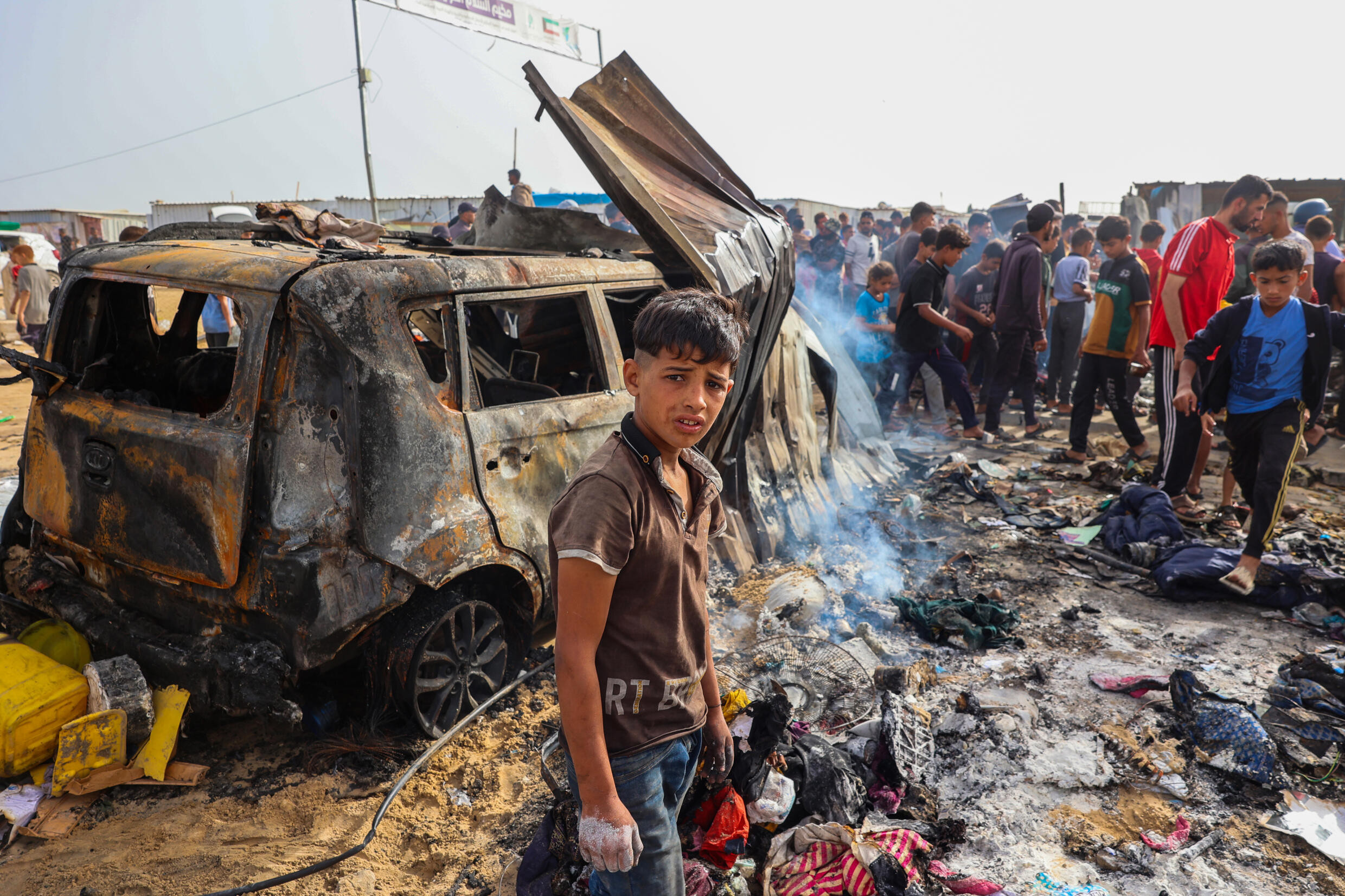
ET: What are your thoughts on the situation on the ground in the ongoing Gaza conflict?
GS: The situation has only deteriorated. It seems to me that Israel is lying to the world, claiming it is trying to save civilians and only targeting Hamas combatants, when in fact it’s still using bombs that kill hundreds of civilians. From the beginning, I believe, Israel has had a genocidal intent. Hamas also had a genocidal intent when it attacked on October 7th, as is clear from the group’s own ideological underpinnings, like their charter, which declares their intent to destroy Israel. That’s a genocidal intent—it's the intent to destroy a national group. Hamas committed genocidal acts by killing many Israeli people.
But since then, most of the genocide has been carried out by Israel. Israel has not made distinctions between combatants and civilians, which is itself a war crime, and for which the leaders of Israel should be put on trial. They’ve committed acts of genocide, in my opinion, by killing over 36,000 people in Gaza, mostly Palestinians. That is the intentional destruction of a national, ethnic, and religious group. That’s called genocide. So, when Israel tries to claim that they're not committing genocide, they’re lying.
The Genocide Convention very clearly states what its provisions are, and Israel is committing all the acts that constitute genocide. It’s killing members of the group and causing extreme physical and mental harm to its members. It’s creating conditions of life that are deliberately intended to destroy a substantial part of the group. It’s preventing births within the group, and it’s even killing so many children that one has to consider that it is actually taking children away from the group. So, those are the five major acts of genocide under the Convention. I think that the International Criminal Court’s (ICC) indictment of Netanyahu and Gallant, as well as the Mossad leaders, is very timely and proper. I believe the ICC prosecutor is correct in bringing charges against them. And my hope is that someday they will be put on trial for their crimes.
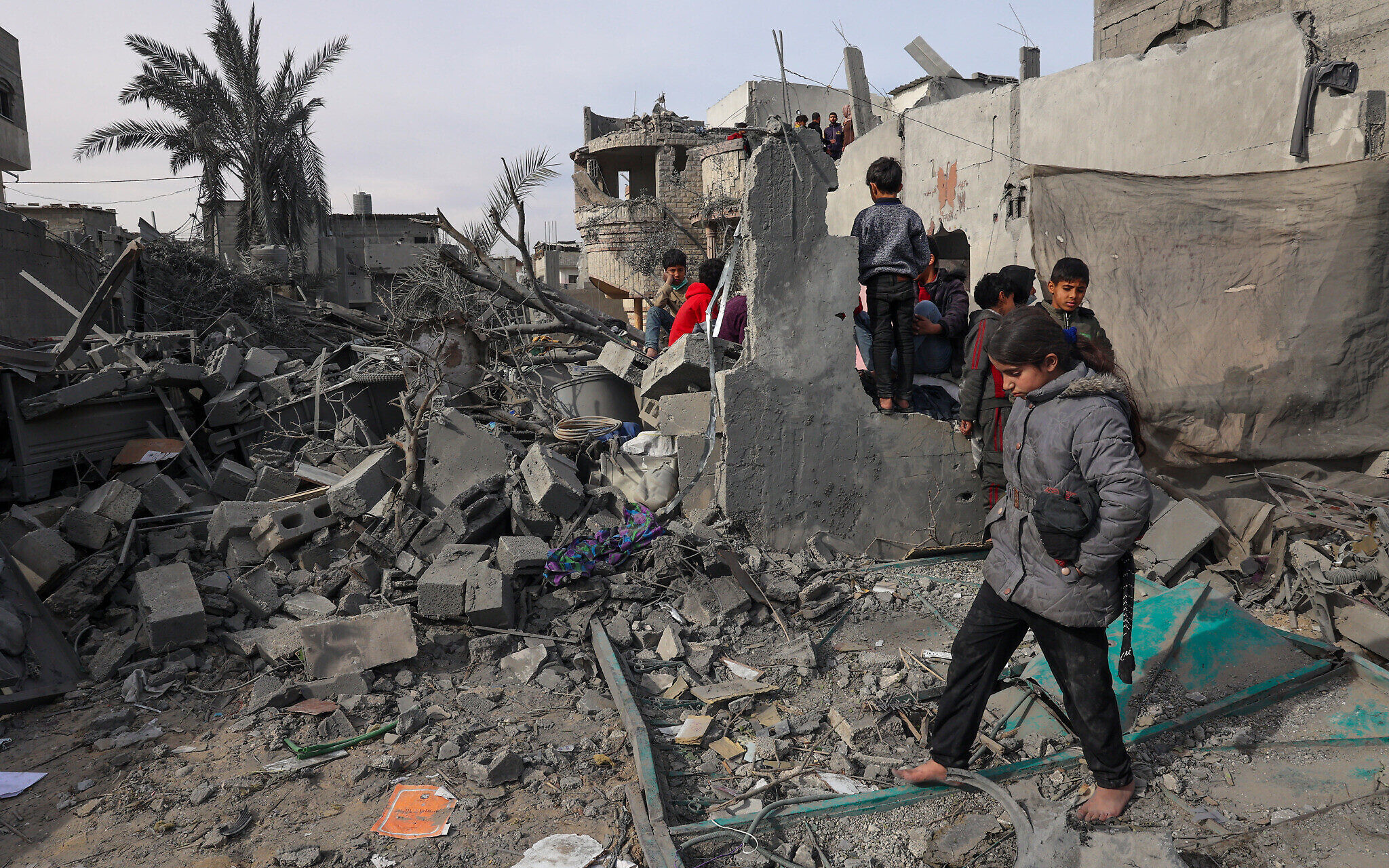
ET: Netanyahu has stated that the conflict will not end before the end of this year. What concerns do you have about this?
GS: I fear that Israel will continue to kill, and that it will be a major battle where Hamas will not surrender. On the other hand, Hamas will try to kill as many Israelis as possible. This conflict won’t end with a peaceful agreement of any kind.
It’s unfortunate because I think this conflict could be resolved with a peaceful agreement. If you look at other serious genocidal conflicts, like the one in Bosnia, for example, both sides were absolutely intent on not coming to a negotiated settlement. But then they were forced to when they realised that the US and NATO were finally taking an active role in Bosnia and defeating the perpetrators of genocide. Eventually, a peace agreement was reached. It was not a perfect peace agreement at all; it divided Bosnia. So, it’s not a perfectly resolved conflict, but I don't think this one will be either.
This is a deep-seated conflict. It goes down to the very deep fault lines in the Middle East. That is why I don't think we’ll have a peaceful agreement, but I do think we can at least stop this war. And that’s what’s really important. That was what was really important in Bosnia. When you have war crimes, the best way to end them is to stop the war.
ET: Israel has expanded this conflict into central Rafah, defying international pressure. Who can stop Israel at this point?
GS: I’m afraid no one can. The International Court of Justice (ICJ) made it very clear that Israel should stop its invasion of Rafah, and yet Israel has just ignored the ruling of the International Court of Justice. The ICJ doesn’t have its own police force or army, so it can’t enforce its own rulings. What, unfortunately, is going to happen, I believe, is Israel will continue its movement into the centre of Rafah. In the long run, Israel will not be able to govern Gaza because the people in Gaza will not cooperate. What you’ll have, in fact, is a very, very slow and long-lasting and still hateful peace.
ET: The ICJ and the ICC lack enforcement authority for their rulings. Do you foresee the end of these institutions?
GS: No, I don’t see the end of either forum, even though they have this weakness, because the ICJ still fulfils very important functions. For one thing, it’s still the best place to settle boundary disputes and maritime disputes that eventually involve states.
It’s still basically a state versus state court. It has that useful function, I believe. It’s proven not to be very useful in resolving issues about the genocide convention because it can make all the determinations it wants about genocide, and yet it doesn’t have a way to enforce its judgments. The ICJ, actually, in some ways, is more useful because it can at least enforce its judgments once it gets people who are, in fact, charged with crimes to come to trial. It can try people in absentia, but it can try people once they’re captured or when they’re thrown out of power. And that’s, of course, what happened with Milosevic. It’s what happened to a number of individuals that the ICC has tried. So, it is still a very useful court in that sense. When individuals are convicted in the ICC, they go to prison.
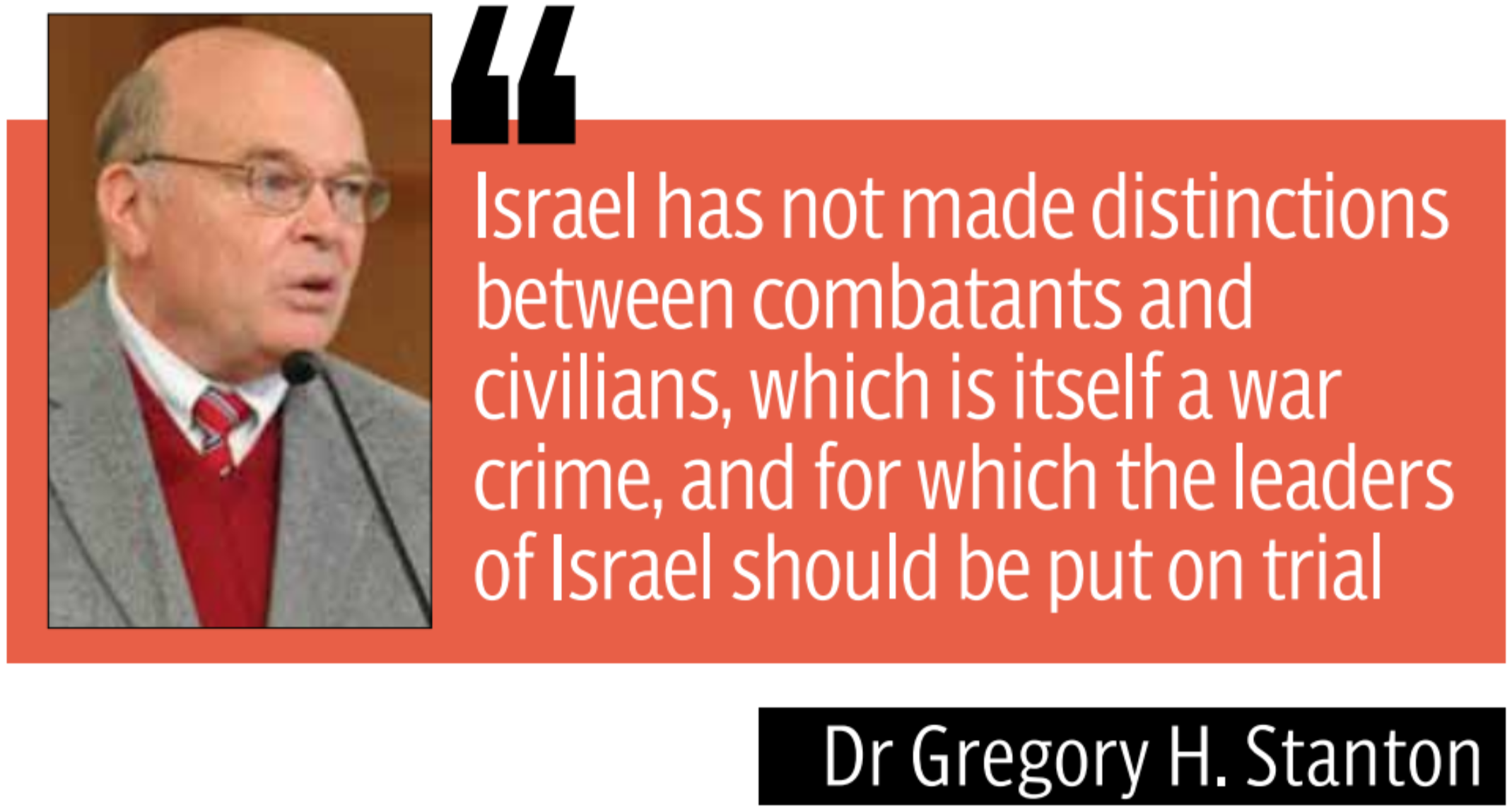 ET: What are your thoughts on the support Israel still enjoys – particularly in Washington DC?
ET: What are your thoughts on the support Israel still enjoys – particularly in Washington DC?
GS: Right now, the United States is supplying Israel with most of its weapons. For instance, the so-called precision bomb that recently destroyed the refugee camp in Rafah was an American-made bomb. Boeing made it. Similarly, most of the other bombs are made here in the United States, including the 2,000-pound bombs that the US, I think, was correct in holding back from the Israelis because the Israelis were using them to bomb areas where you could not distinguish between civilians and combatants.
Those 2,000-pound bombs are no use at all for precision attacks in a war. They are, by nature, genocidal because bombs of that sort are bound to destroy and kill hundreds of people and bring down whole apartment buildings and so forth. Those are some of the main bombs that the Israelis were using and have used to destroy much of Gaza. So, I believe that in that way, the US is complicit in Israeli genocide. And by supporting Israel wholeheartedly, as it does, I think that it is ignoring its own obligations under the genocide convention.
ET: Can the Netanyahu case make or break the ICC? What are your thoughts on that?
GS: Well, that’s an important point. And the reason for that is, of course, Israel is not a state party to the ICC. Israel will argue that the ICC has no jurisdiction to try Netanyahu. Under the ICC’s Rome Statute, I think that’s actually a tenable argument that Israel could make to try to defend Netanyahu. It’s the same argument that would arise if an American, for instance, were charged by the ICC for a crime in an area that the ICC could not prove was a territory subject to its jurisdiction. Now, if an American, for instance, had been tried for a crime that occurred in a territory under the jurisdiction of the ICC, then the ICC would have jurisdiction.
So, the question becomes a legal one. I don’t think these kinds of issues should be used to weaken the ICC. In other words, I think the US should be a state party to the International Criminal Court, as I believe most countries should be. It’s a sad commentary that our own country, the US, has not become a state party. It’s a denial of the rule of law. What we are saying is we’re immune from international criminal law, and we should not be making that kind of claim. Nor should, for that matter, Russia, India, China, or any of the other countries that are not state parties to the International Criminal Court.
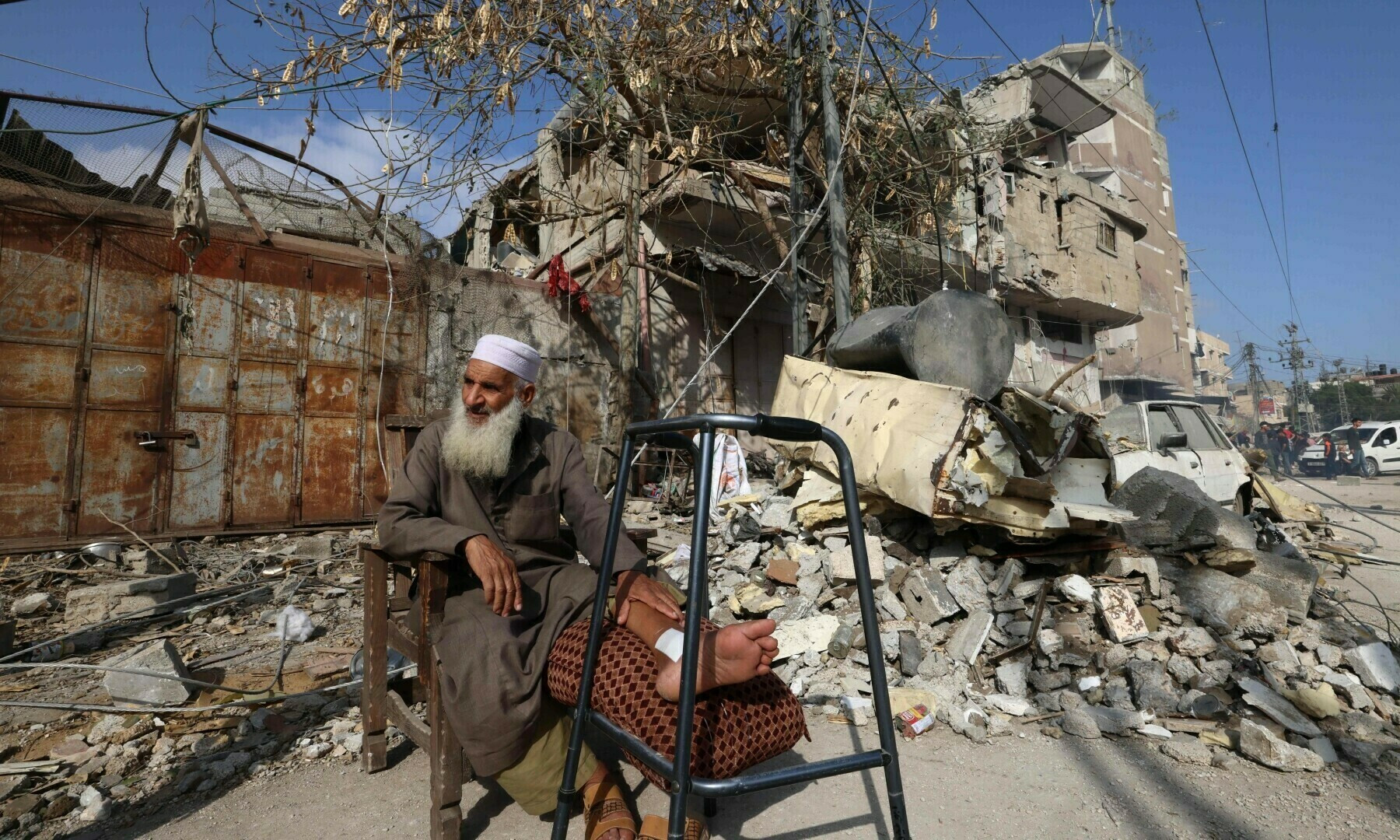
ET: The ICC, like other global platforms, was created by the West. The ruling against Israel and a possible arrest warrant for Netanyahu have triggered a campaign in some Western capitals to discredit the ICC. Some Western countries have rejected the ICC prosecutor’s request for the arrest warrant for Netanyahu. Is the West undermining the systems it created only to protect Israel or its leadership?
GS: It looks like it, doesn’t it? You can’t choose which part of the law you’re going to be subject to. If you have an international law, it needs to apply universally. In fact, the ICC has over 130 countries that are state parties to the International Criminal Court. That’s a very large number of countries. So this is really becoming what they call customary international law, that the ICC has jurisdiction. What it does not, however, have is jurisdiction over citizens of countries that are not state parties to the ICC, unless that citizen commits a crime of genocide, crimes against humanity, or war crimes in the territory of a country that is a state party to the ICC.
Now, the Palestinians could argue that, well, we have accepted the jurisdiction of the ICC. Therefore, the Israelis who have bombed us should also be able to be put on trial in the ICC. I think it’s an interesting argument. One problem, though, is that Palestine is still not considered a nation-state, at least by most countries in the United Nations. It is accepted by a number of countries, but one could argue that its becoming a state party to the ICC treaty is not one that would hold here against Netanyahu and Gallant. I don’t know if that’s going to be decided. It’s the sort of issue that lawyers will debate. And I'm not sure that Netanyahu and Gallant will ever be hauled in front of the ICC. But what is clear to me, at least, is that both of them, and most of those associated with them, have committed genocide, crimes against humanity, and war crimes. They’ve given the orders.
ET: Netanyahu has characterised the request for arrest warrants as anti-Semitic, applying this label to various situations that oppose his narrative, including the US campus protests. Do you believe the Israeli leadership is misusing the Jewish identity?
GS: There’s nothing anti-Semitic about indicting someone for war crimes or for crimes against humanity or for genocide, when in fact that person has ordered acts of genocide or crimes against humanity or war crimes. That is not anti-Semitic. It is simply applying the law and it’s not a matter of whether a person has a certain religion, nationality or ethnicity.
So, they are misusing the Jewish identity to defend themselves. I think it’s also, by the way, a violation of the great laws of Moses. The laws of Moses, which are at the heart of the Jewish identity, include the commandment that you shall not kill. Well, what is happening in Gaza is clearly killing, and I believe that the basic Jewish identity is itself being violated by the acts of Netanyahu and Gallant. Now, I understand, by the way, why Israel believes it needs to defeat Hamas because Hamas itself is a genocidal organisation. It’s impossible, really, to have a pure opinion here because both sides are committing genocide.
And you know, what do you do when one side is committing genocide? It’s kind of like saying look, Hitler was committing the Holocaust. So, pretty much any kind of tactic that we can use against Hitler is justifiable. We said the same about Japan, of course, that it was committing genocide and so any tactic including the use of the atomic bomb was somehow justifiable.
Well, I don’t agree with that. I think that no genocide is ever justifiable and that’s why I would have opposed the use of the atomic bomb. I think that there would have been other ways to demonstrate to the Japanese that they could not win the war before we had to destroy Hiroshima and Nagasaki. Similarly, I think that the war crimes committed against the Germans by the firebombing of Dresden, for example, were unjustifiable. Those were war crimes. But of course, no one’s ever been tried for those crimes because it was the war crimes committed during a war. I’m afraid this is going to be a similar situation where the people committing these crimes will probably have impunity.
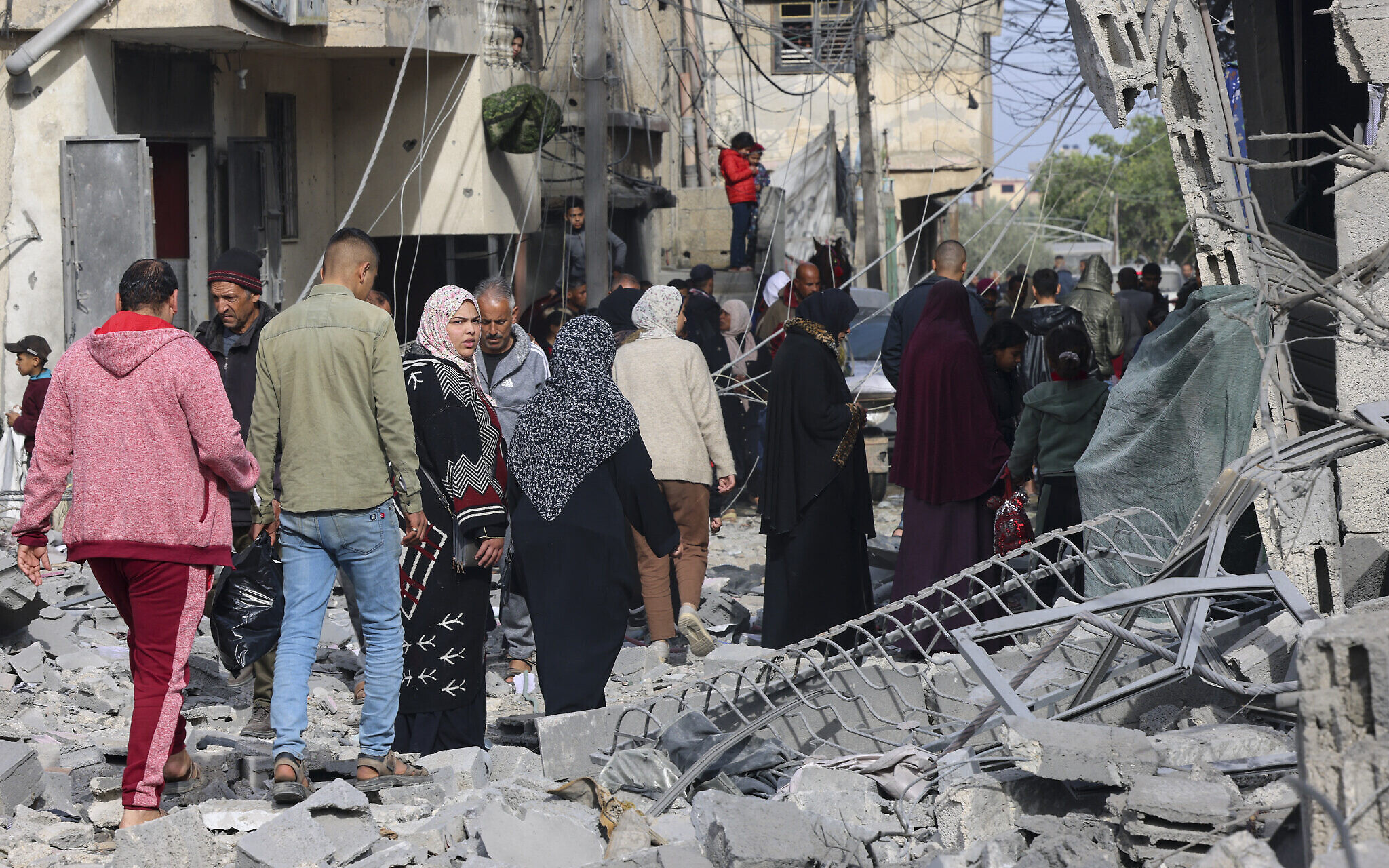 ET: What does the Gaza conflict case mean for international law? Will the world take the arrest warrants for Putin seriously if we end up being selective about the arrest warrants for Netanyahu?
ET: What does the Gaza conflict case mean for international law? Will the world take the arrest warrants for Putin seriously if we end up being selective about the arrest warrants for Netanyahu?
GS: This is an important point. The arrest warrants for Putin demand serious attention as he is involved in war crimes and crimes against humanity. The meticulous documentation by legal authorities in Ukraine underscores the severity of his actions.
I have confidence that the ICC will remain steadfast despite any challenges in apprehending individuals like Netanyahu, Gallant, or Hamas leaders. The institution will continue to operate effectively, much like any legal system that remains functional even when some violators evade justice.
As for Putin, I foresee eventual consequences, possibly through international trials following his overthrow. However, I’m not so sure about Netanyahu, Gallant, and the other Israeli leaders, nor am I that sure about the leaders of Hamas because they will be able to flee to countries that will protect them and keep them from being arrested.
ET: The White House is considering whether this latest attack on Rafah, which killed 45 Palestinians in a tent camp, crosses Biden's red line. Will anything that Israel does cross that line, or is it infinitely movable?
GS: Well, you know, I have a great distrust of red lines. Former president Obama said it was a red line if Syria used gas against its own population, and then Syria did use gas, and it turned out not to be a very solid red line because we didn’t respond in any way. So, I don’t think that when Biden says it’s a red line that it really means very much. These red lines do seem quite movable, as you said. So my own view is that unless the United States tells Israel we are no longer going to provide you with any weapons, that red line will just keep moving.
ET: What does this war mean for the US in the long term and its standing in the world, especially in the Muslim world?
GS: I’m not sure our standing was that good anyway, but supplying the weapons being used to kill 36,000 Palestinians in Gaza has reduced our standing even more. Now, I don’t know that any of the so-called realists, as they like to call themselves, would care. They think it’s all about national interest. Well, I don’t think that international law and our standing in the world are all about national interest. I believe there is a fundamental unity to the human race, and when people violate it as we are, we should be ashamed. We should not be liked or supported.
And I think that’s why we should be subject to the very same laws that everyone else is. We should be state parties to the International Criminal Court, and for that matter, we should accept the compulsory jurisdiction of the International Court of Justice. As you may know, we withdrew from the compulsory jurisdiction of the ICJ when Nicaragua sued us for violating its sovereignty. We said, “Oh, okay, we are withdrawing from this case.” We no longer accepted the compulsory jurisdiction of the ICJ.
That’s a violation of the rule of law, and I think the US should be ashamed that we did that. I also think we should be ashamed that we’re supporting Israel right now. This doesn’t mean we should not support Israel in the long term. We should. Israel deserves to exist as a nation because it is the place the UN set aside for the Jewish people to have their own state, their own place where they could defend themselves. After the Holocaust, everyone understood that they needed that. But right now, Israel is forfeiting its moral standing in the world as a place created to protect Jews from another Holocaust by inflicting genocide on the Palestinians.
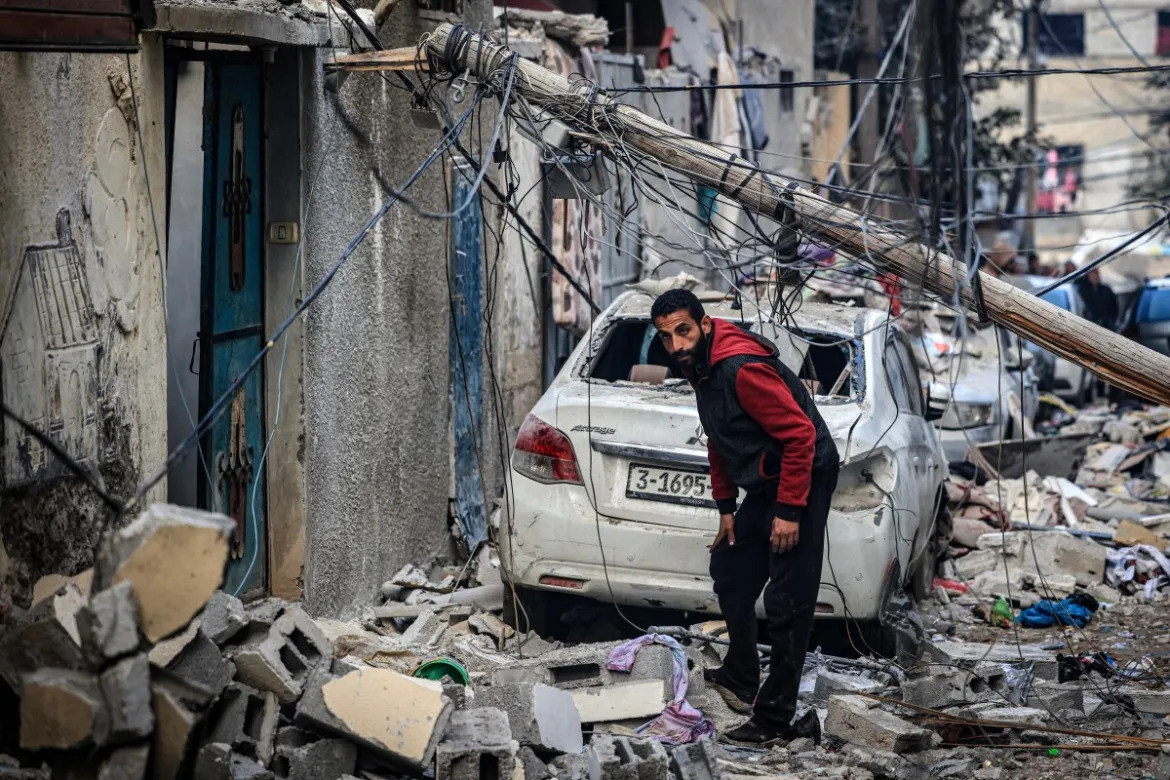
ET: For almost a decade, Israel’s intelligence services have deployed a range of clandestine actions aimed at dissuading the International Criminal Court from prosecuting its leaders. What does that tell you about Israel, which claims to be a democratic country, and Netanyahu, who claims to be an elected leader?
GS: Well, I’m not at all surprised. One could argue, as any American president might, that surveillance operations are necessary to prevent surprises when an enemy tries to attack. So, I’m not surprised that Israel would do that. Mossad is known for its ability to carry out surveillance operations. But look at what happened on October 7th: a total intelligence failure.
These intelligence operations aren’t necessarily very effective. From my experience in the State Department, I learned you could often get better intelligence from open sources than from the CIA. The CIA briefed us every morning, but very often, better reports could be found on the front pages of the New York Times.
After I left the State Department, David Scheffer, our war crimes ambassador, asked me and a few others to provide him with open-source intelligence about places where genocide was likely to break out. We did, using open sources like LexisNexis and newspapers around the world.
The CIA was a bit ticked off, so we decided to have a little competition. We each took a country—Burundi in this case—and by the end of the week, it was clear that our open-source intelligence was superior. So, it doesn’t surprise me at all. In fact, I believe many government operations should be more open than they currently are. There’s too much unnecessary classification.
ET: The conflict in Gaza exhibits all signs of an unfolding genocide, even being broadcast on live television for the world to witness. However, the West seems hesitant to accept or acknowledge it. What are the consequences of this persistent denial?
GS: Well, denial is, as you know from the model we use, the 10-stage model of genocide. Denial is always one of the key processes in every genocide. It starts at the very beginning of the genocide. It goes all the way through the genocide and even lasts long after the genocide is over. So, denial itself is one of the greatest predictors of future genocides. We’ve shown that statistically, where there is denial, you have three times as much chance of a further genocide than you do if there hasn't been denial.
That’s why it’s so important to have tribunals. It’s why it’s so important to have education and, you know, news coverage of what’s happened and so forth. This denial has been witnessed repeatedly. We had the very same situation during the Rwandan genocide. We have had it in many other genocides. There was even denial during the Holocaust. People here in the United States wouldn’t believe that Hitler was committing the crimes he was. Because of that, we did not bomb the crematorium, for instance. We did not try to take out the death camps.
The result of denial is genocide, and that’s why I’m so concerned about it. Right now, the Israeli citizens are not getting the truth. They need to get the truth about what their government is doing.
ET: Xi Jinping has called for a meeting of Arab leaders. The Chinese leader said that justice cannot wait. What are your thoughts on China taking the lead while the US abdicates its self-proclaimed role?
GS: Well, I think it’s ironic, isn’t it? Here we are pointing our fingers at China because, after all, China itself is a genocidal state. The genocide of the Uyghurs, for instance, is still going on. Clean hands, as you know, are not a qualification for being able to tell the truth. You don’t have to have perfectly clean hands. And if President Xi is saying we need justice now, he’s right. I don’t care where he comes from and how guilty he may be and how guilty his country may be. The truth is that even though China is not really in a good position to be, you know, calling out Israel or the West or anyone else for violating human rights standards, it’s good if they do so because when we violate those standards, we should be ashamed of it. We should be called out for it.
And I believe this is a case very much in that line. The US needs to face its own responsibilities. We need to tell Israel to stop the conflict. I would like to take one of those little girls who has lost her family in Gaza. I would like to take her to the office of Benjamin Netanyahu and ask him to apologise.
